Whether you rarely fly or you're a seasoned road warrior, we've all got something in common: Spending time in airport security lines is the worst. And with with travel numbers now crushing pre-pandemic levels, lines at the airport are often longer than ever.
TSA PreCheck is a household name in travel at this point, billed as one of the best airport timesavers out there. A quick trip through security is more important than ever … and thanks to a recent price drop, it's even cheaper now, too. But after years of growing popularity – there are now more than 20 million travelers with PreCheck – the process can still be confusing.
Here's everything you need to know, from how to get signed up, how to make sure it works, and a few ways to get it for free.
How Does TSA PreCheck Work?
Officially, PreCheck is run by the Transportation Security Administration, a federal government agency, as a trusted-traveler program. Unofficially, it's your ticket for a fast pass through airport security screening.
Only members of this program are eligible to hop in the TSA PreCheck lanes, which means lines are generally much shorter than the standard screening lines. And once you're in it, there's no need to remove your coat, shoes, or belt, nor do you need to remove electronics or liquids from your bag. That means the line moves much faster, too.
In short, TSA PreCheck can shave a ton of time off your wait in the security line. Your first time using it, you’ll wonder why you didn’t join the program sooner.
The one catch is that TSA PreCheck only partners with specific airlines, so you may not always get that quick pass through security even when you have a PreCheck membership. Luckily, that list of airlines is growing.
Does Your Airline Work with PreCheck?
This is one of the biggest points of confusion surrounding PreCheck. Just because you're signed up for PreCheck doesn't mean you'll always get into the PreCheck lane at the airport.
It hinges on which airline you're flying with, which will print a PreCheck symbol on your boarding pass if you're approved. Your airline doesn't participate in PreCheck? Sorry, you're out of luck.
However, all of the major domestic airlines and even many of the small U.S. carriers are included. More international airlines are joining the program each year. All told, more than 100 airlines currently participate in PreCheck.
Here's the full list as of publication – you can also search for an airline if you don't see it!
| Airline |
|---|
| Advanced Air |
| Aer Lingus |
| Aerolane Lineas Aereas Nacionales del Ecuador |
| AeroMexico |
| Air Canada |
| Air Europa |
| Air France |
| Air India |
| Air New Zealand |
| Air Premia |
| Air Serbia |
| Air Tahiti Nui |
| Air Transat |
| Alaska Airlines |
| All Nippon Airways |
| Allegiant Air |
| American Airlines |
| Aruba Airlines |
| Asiana Airlines |
| Austrian Airlines |
| Avelo Airlines |
| Avianca |
| Azul Airlines |
| Bahamasair |
| BermudAir |
| Boutique Airlines |
| Breeze Airways |
| British Airways |
| Brussels Airlines |
| Cape Air |
| Caribbean Airlines |
| Cathay Pacific Airways |
| Cayman Airways |
| China Airlines |
| Condor Airlines |
| Contour Aviation |
| Copa Airlines |
| Delta Air Lines |
| Eastern Airlines |
| Edelweiss Air |
| EL AL Israel |
| Emirates |
| Ethiopian Airlines |
| Etihad Airways |
| Eurowings Discover |
| EVA Air |
| Fiji Airways |
| Finnair |
| Flair Airlines |
| Flycana |
| French bee |
| Frontier Airlines |
| Global Crossing Airlines |
| Hawaiian Airlines |
| iAero Airways |
| Iberia |
| Icelandair |
| InterCaribbean Airways |
| ITA Airways |
| Japan Airlines |
| JetBlue Airways |
| Key Lime Air |
| KLM Royal Dutch Airlines |
| Korean Air |
| La Compagnie |
| LAN Peru S.A. |
| LATAM Airlines |
| Lufthansa |
| New Pacific Airlines |
| Norse Atlantic Airways |
| Norwegian Air |
| Omni Air International |
| PAL Express |
| Philippine Airlines |
| Porter Airlines |
| Qantas |
| Qatar Airways |
| RED Air |
| Saudia |
| Scandinavian Airlines |
| Seaborne Airlines |
| Silver Airways |
| Singapore Airlines |
| Southern Airways Express |
| Southwest Airlines |
| Spirit Airlines |
| STARLUX Airlines |
| Sun Country Airlines |
| Sunwing Airlines |
| Swiss International Air Lines |
| Swoop |
| TAM-Linhas Aereas S.A. |
| TAP Air Portugal |
| Titan Airways |
| Turkish Airlines |
| Ultimate Jet Charters |
| United Airlines |
| Virgin Atlantic |
| Viva Air Colombia |
| VivaAerobus |
| Volaris |
| WestJet |
| World Atlantic |
| ZIPAIR |
TSA has added dozens of airlines over the last few years. Nowadays, Even most most budget airlines like Frontier, Allegiant, Spirit, and Sun Country all participate in TSA PreCheck. Notable airlines that don't participate in TSA PreCheck include China Southern, China Eastern, EgyptAir, and PLAY Airlines.
How to Apply
Signing up is a fairly easy process – and there are two ways you can get it. And if you hold the right credit card, you don't have to pay for it. More on that later.
For starters, you can apply online directly with the TSA. The PreCheck application is fast and easy. Just fill it out and pay the fee: $78 for a five-year membership. From there, you'll head to a certified enrollment center for a background check, including a brief interview (bring your passport!), fingerprinting, and a photo. These interviews are simple and generally take 10 minutes or less. If everything checks out, the whole process should take about two or three weeks from application to approval, maybe even less.
But there's another way to get PreCheck: Get Global Entry instead.
Global Entry is an outstanding two-for-one for travelers. Not only do you get a fast pass through immigration and customs when returning to the U.S., but you'll get PreCheck, too. The fact that it only costs $120 for a five-year membership is why we often recommend it for travelers deciding between Global Entry vs TSA PreCheck.
The one hitch is that is applying for Global Entry can take much longer. Like PreCheck, it requires an in-person interview. While getting conditional approval from the federal government before your interview often takes just a week or so, it can sometimes take several months. And there are fewer Global Entry enrollment centers nationwide, so scheduling an interview can take weeks … if not months.
Read more: Tips to Get Your Global Entry Interview Scheduled Faster
Whichever route you go, once you're approved, you'll get a Known Traveler Number. Be sure to plug this number into your frequent flyer accounts with the airline(s) you're flying. Just log in online and pull up your account information to enter it.

Renewing PreCheck
Once you're signed up, you'll need to renew your PreCheck every five years to keep it active. Luckily, the renewal process is even easier – and cheaper, too, at just $70.
Unlike the initial application that requires a background check, the vast majority of current TSA PreCheck members can simply renew their memberships online. The renewal window opens starting six months before the current expiration date.
Last fall, the TSA made a consumer-friendly move by lowering the cost of renewing PreCheck to $70 for another five-year stint when renewing online. In-person renewals – when a traveler has a name change, for example – will still cost $78 for another five years.
When you're ready to renew, simply head to the TSA PreCheck renewal page and fill out the form. Of course, if you access TSA PreCheck through Global Entry you'll need to go through the Global Entry renewal process instead.
Get PreCheck Free with the Right Travel Card
No joke.
While getting PreCheck will typically cost you at least $78 for five years, you don't actually have to pay that. This is where carrying the right travel credit card can pay off big.
A growing number of credit cards come with a credit of up to $120 that will cover your application for either Global Entry or TSA PreCheck. It works once every four (or 4 1/2) years. Just pay the application fee with one of these credit cards and you'll be automatically reimbursed.
Check out the full list of cards that will cover Global Entry or TSA PreCheck!
Thrifty Tip: Already have PreCheck and want to use your credit for someone else? Simply pay the application fee for a family member or friend with your card and it will work just the same.
One of our favorite cards for getting this service for free is the *capital one venture card*. In addition to some other sweet perks – not to mention the 75,000 Venture miles you earn after spending $4,000 in three months on the card – you get this $120 application credit. Most credit cards that offer this benefit have annual fees of $400 a year or more, yet the Venture Rewards Card costs just $95 a year.
Learn more about the *capital one venture card*
A few other popular travel credit cards that will cover the cost of PreCheck include the *united explorer*, *delta skymiles platinum card*, *venture x*, and *amex platinum*.
Active members of the military also get to access TSA PreCheck for free – and there's no need to apply. Simply enter your 10-digit DOD ID number as a Known Traveler Number.
Why Isn't PreCheck Showing Up on My Boarding Pass?
It's annoying to be sure, but it happens to the best of us: Every once in a while, even travelers with PreCheck realize it's nowhere to be found on their boarding pass.
There are a number of reasons why … and in many cases, they're easy to fix.
You Forgot to Add it When You Bought Your Flight
Once you've signed up for PreCheck and you've got your Known Traveler Number (KTN), you have to make sure you enter this number in the correct box when booking your flights. And you have to do it for each and every airline.
For example, here's the field where you can enter your KTN when booking with Delta. No matter which airline you're booking, you'll typically see a field like this after entering your name and other personal details.
Better yet, we recommend doing it in advance: saving your KTN to each of your frequent flyer accounts – or at least the carriers you fly with frequently. That way, it should be automatically included whenever you book a flight.
The Name on Your Booking Doesn't Match
Swear you have your PreCheck number on your ticket? Nine times out of 10, it's about your name.
The name on your boarding pass and the name attached to your Known Traveler Number have to match. That's how your PreCheck benefit carries over, and how the TSA knows that you're trustworthy. So if you're flustered by not getting PreCheck, it's worth checking into whether there's been an issue.
And typically, there's an easy fix. Message the airline you're flying with directly on X (formerly known as Twitter) or Facebook. It's one of the quickest ways to solve any problem with your flights.
I ran into this issue once due to an issue with my name not carrying over properly on an award booking. Within about 15 minutes, the issue was fixed and the TSA PreCheck logo showed up on my boarding pass.
Your PreCheck is Expired
There's a good chance you forgot or were unaware of your TSA PreCheck expiration date.
You'll need to renew your PreCheck every five years to keep it active. Luckily, the TSA PreCheck renewal process is much easier (and faster) than the initial enrollment.
Unlike the initial application that requires a background check, the vast majority of current TSA PreCheck members can simply renew their memberships online. The renewal window opens six months before the current expiration date.
Read more: Why TSA PreCheck Isn’t Showing Up on Your Boarding Pass
Can My Kids or Family Use It, Too?
It depends … largely on how old they are.
According to TSA regulations:
- Any minors 12 and under can accompany an adult with TSA PreCheck through the exclusive queue
- Children aged 13 through 17 can go through PreCheck, too – but only if they're booked under the same reservation as an adult with PreCheck
But what about older children, spouses, other family members, or friends?
In theory, those benefits won't pass down – they'll need their own membership. But in practice, airlines will occasionally pass it on to an entire reservation. Airlines have some discretion in deciding whether or not to pass on these benefits to everyone. And anecdotally, it seems as though airlines and the TSA have gotten stingier with sharing the benefit with traveling families.
In short: Airlines will sometimes give the rest of your traveling party your security benefits. But other than for kids, you can't always count on it.
What About CLEAR?
CLEAR and TSA PreCheck are often used synonymously. And while they're both great ways to cut down on your time in the security line, they're drastically different.
For starters, CLEAR is a privately run company, while TSA PreCheck is run by the federal government. PreCheck costs just $78 for five years, while CLEAR charges an annual fee that starts at a whopping $199 – though you can cut down that cost with Delta or United. A handful of top-dollar credit cards will cover the cost of CLEAR, too.
But these programs themselves operate much differently. PreCheck gets you into a dedicated lane. CLEAR cuts you to the front of the line – the PreCheck line, if you use TSA PreCheck, or the standard line if you don't.
That makes CLEAR and PreCheck a powerful duo to get through security as fast as possible – they're not exactly duplicative.
Read more on how TSA PreCheck vs CLEAR compare!
Bottom Line
We mean it: TSA PreCheck is one of the best investments a frequent traveler can make. After your first (faster) trip through security, you'll kick yourself for not getting it sooner.
And now you know exactly how it's done.
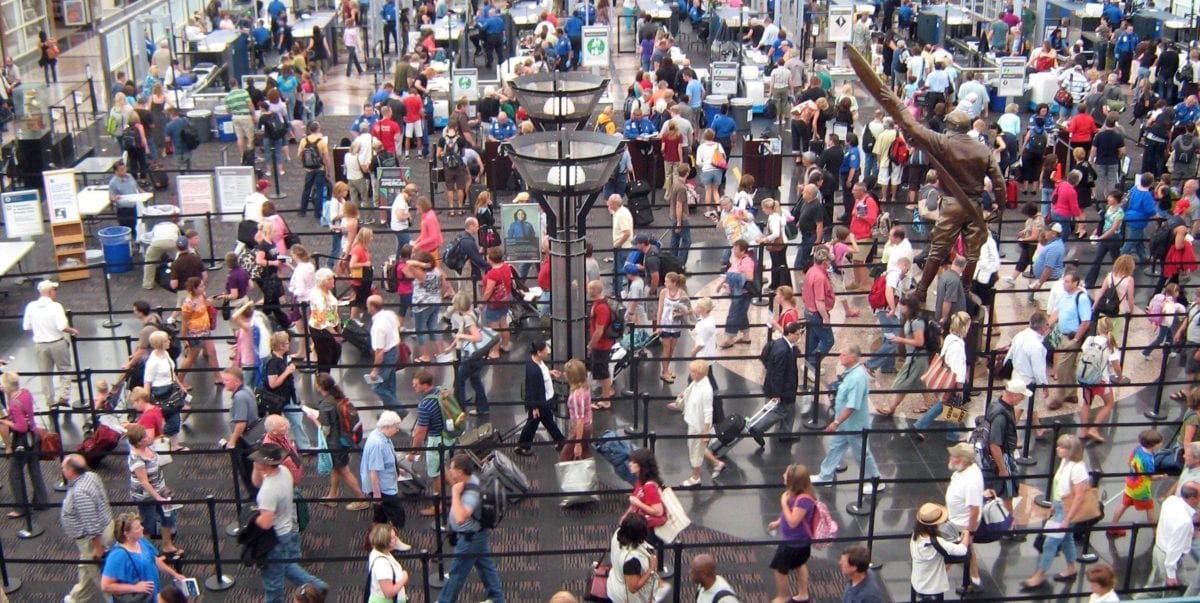
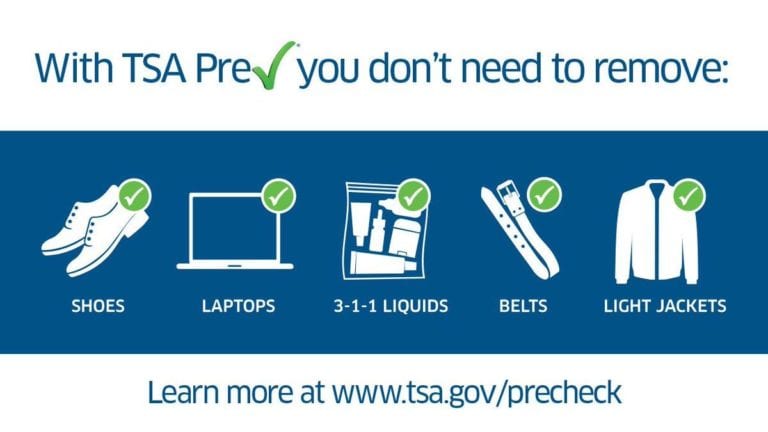

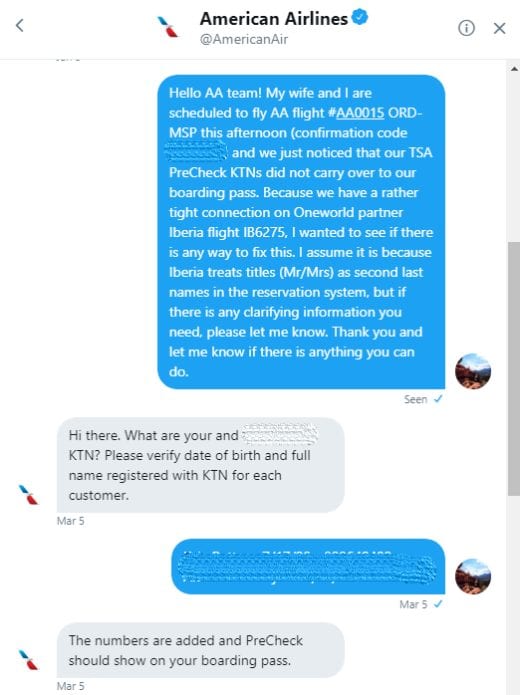
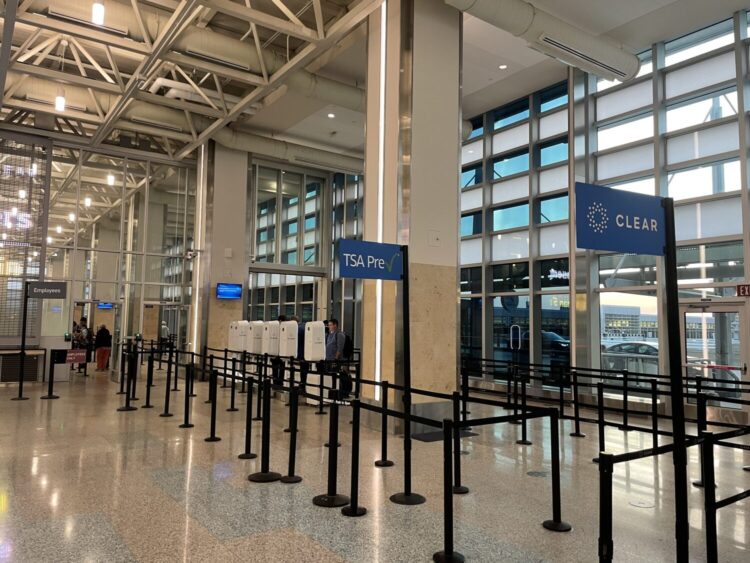
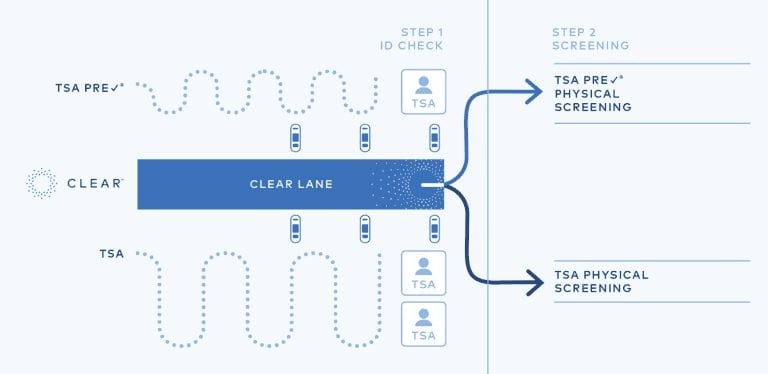
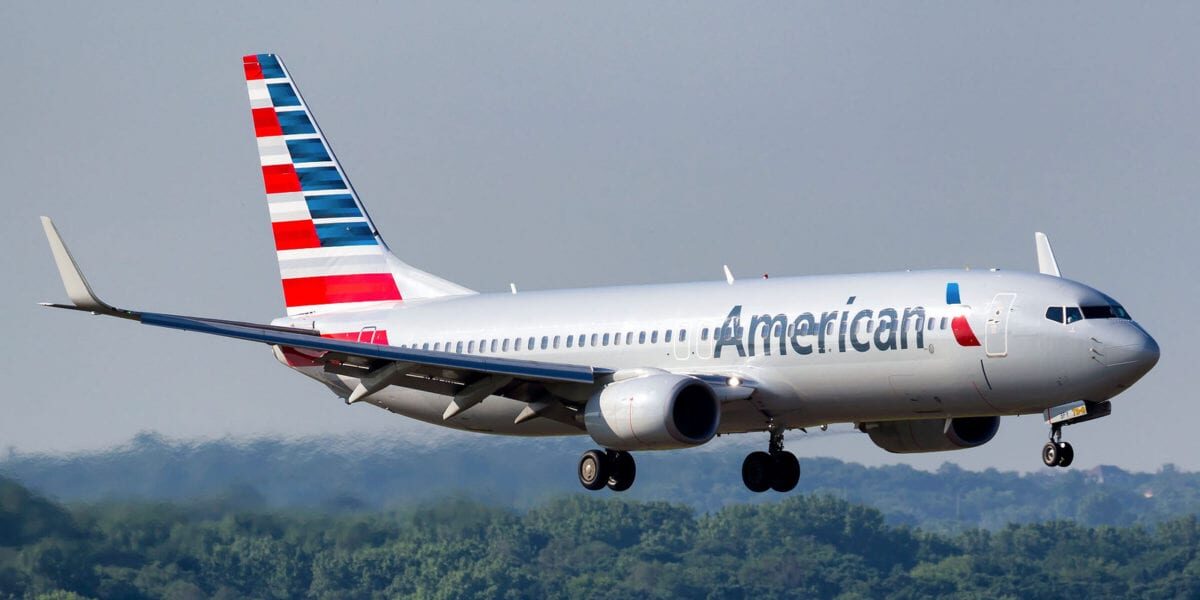
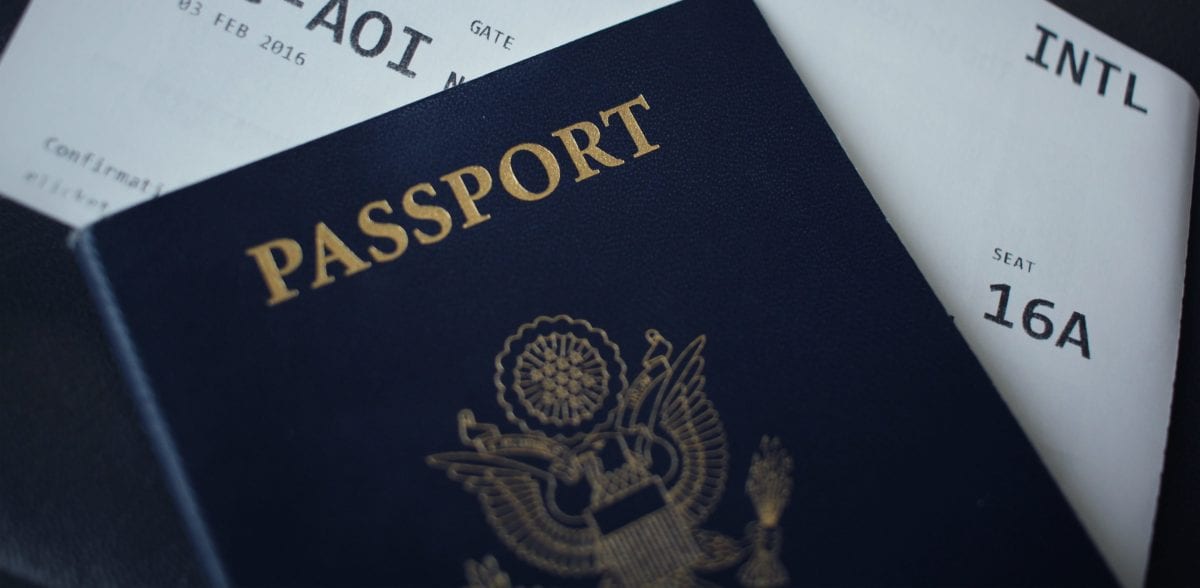

I need ts
TSA Precheck is a God send- love it.
I registered with airlines I fly entering my numbers and then it usually shows up whenever I buy a ticket on that airline.
TSA Precheck may not be helpful in small airports like Kalispell or Jackson WY – in both cases it was one line and they handed us a card for the actual scanning part.
I applied on July 14, 2022, and haven’t heard anything yet. Mu husband applied on July 21, 2022, and received his e-mail on July 22, 2022, with his approval and KTN number. When I called, IDentgo, they said mine was still in process, but could not give me a reason. I’m not a criminal, and don’t have a record. What could be the problem, and what can I do?
We are flying out of the country August 14, 2022. Are spouses able to use the other spouses precheck now?
I called a TSA rep and was told it could take up to 60 days for approval. Since I’m leaving on Aug.20, 2022, she said I wouldn’t have enough time to get approved. So I didn’t try. What is your opinion?
Thank you.
They say 60 days. In reality it’s much quicker. Mine got approved in 3 days.
I applied and was approved for global entry. I just noticed though that I had a credit card (which I stupidly didn’t use) that would have reimbursed the enrollment cost. Does anyone know if there is a way like during the interview to cancel original payment and use the other card. Thinking I’ll probably just have to wait until I renew in 5 yrs ☹️
Unfortunately, no – we don’t believe this is possible.
I have two total knee replacements and each time since the surgeries i am taken aside and patted down is there any documentation i can provide that will-stop the pat downs I have had a TKN for several Years
I was approved for TSA pre check but was told I didn’t have to do an interview. They told me to check in with the airport. How does that work?
My company booked a flight for me and a couple other co-workets, can I add my tsa pre check to the ticket or can I give them my KTN prior to booking so that I am able to use precheck on the day of my flight ?
Yes you should be able to manage your reservation directly with the airline using the six-digit confirmation code and use that to enter your KTN there.
Hi we are flying Aer Lingus in July 2022 I see they are owned by the same entity that owns British Airways. My question is related to TSA pre-check; why is Pre-check not accepted for Aer Lingus? Is there any chance this may change in the near future?
This is/was super helpful, thank you!
can a person who bought a $85 national PreCheck upgrade to the Global and just pay the difference.
No, unfortunately – these are entirely separate programs. You’d have to pay the full $100 or use a credit card that will reimburse your application.
For some inexplicable reason, I was turned down by Global Entry twice. I do have a membership with CLEAR. and was obviously cleared. Because I was turned down by Global Entry, does that mean I will be rejected by TSA Precheck also?
Thank you.
As a person who was also turned down for Global Entry, there is always a reason. I’d inquire to figure out why. I was successful in writing for an appeal to the ombudsman. If you were rejected for Global Entry you can always apply separately (for an additional fee) for TSA Precheck although I would appeal first.